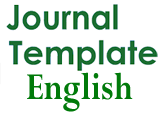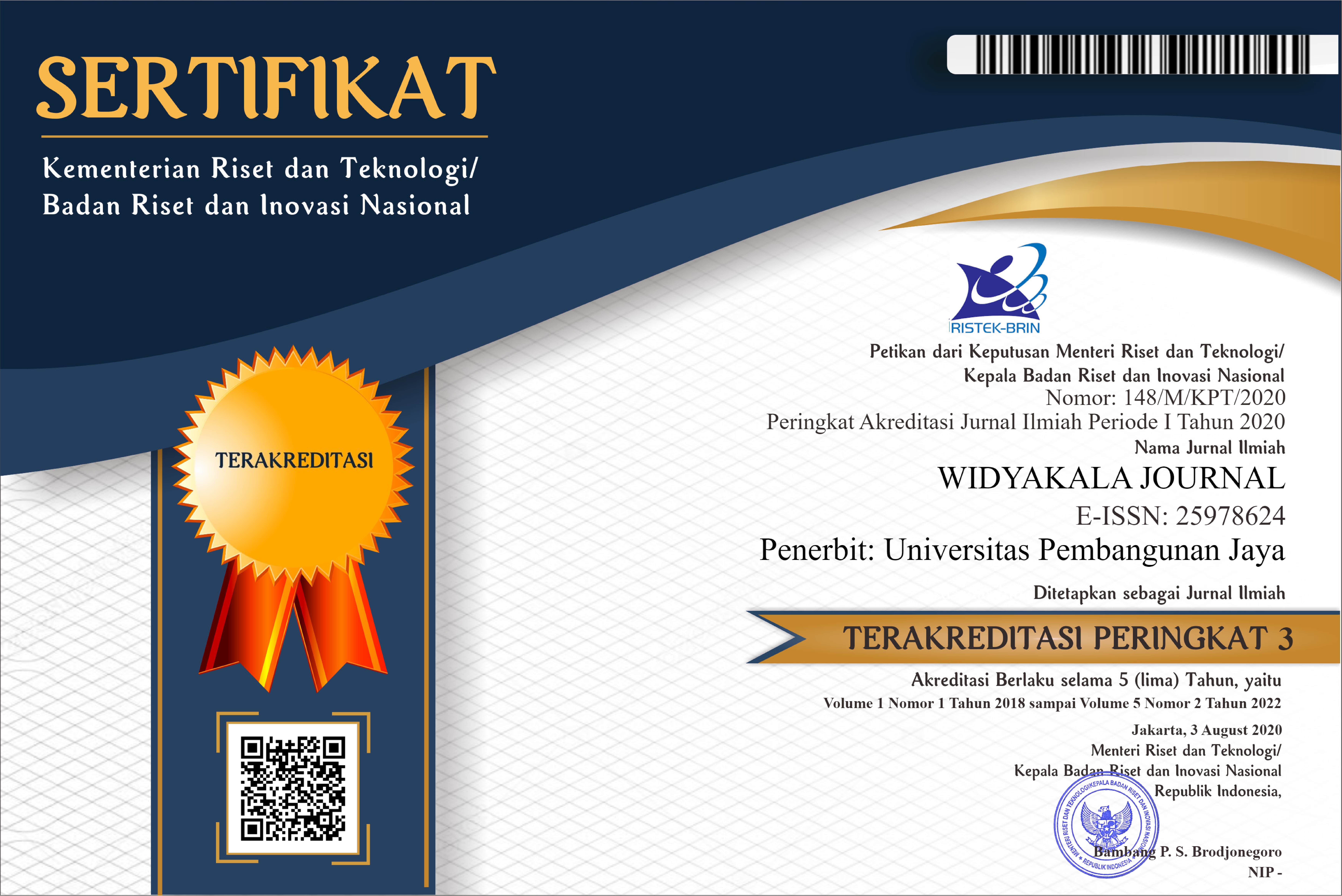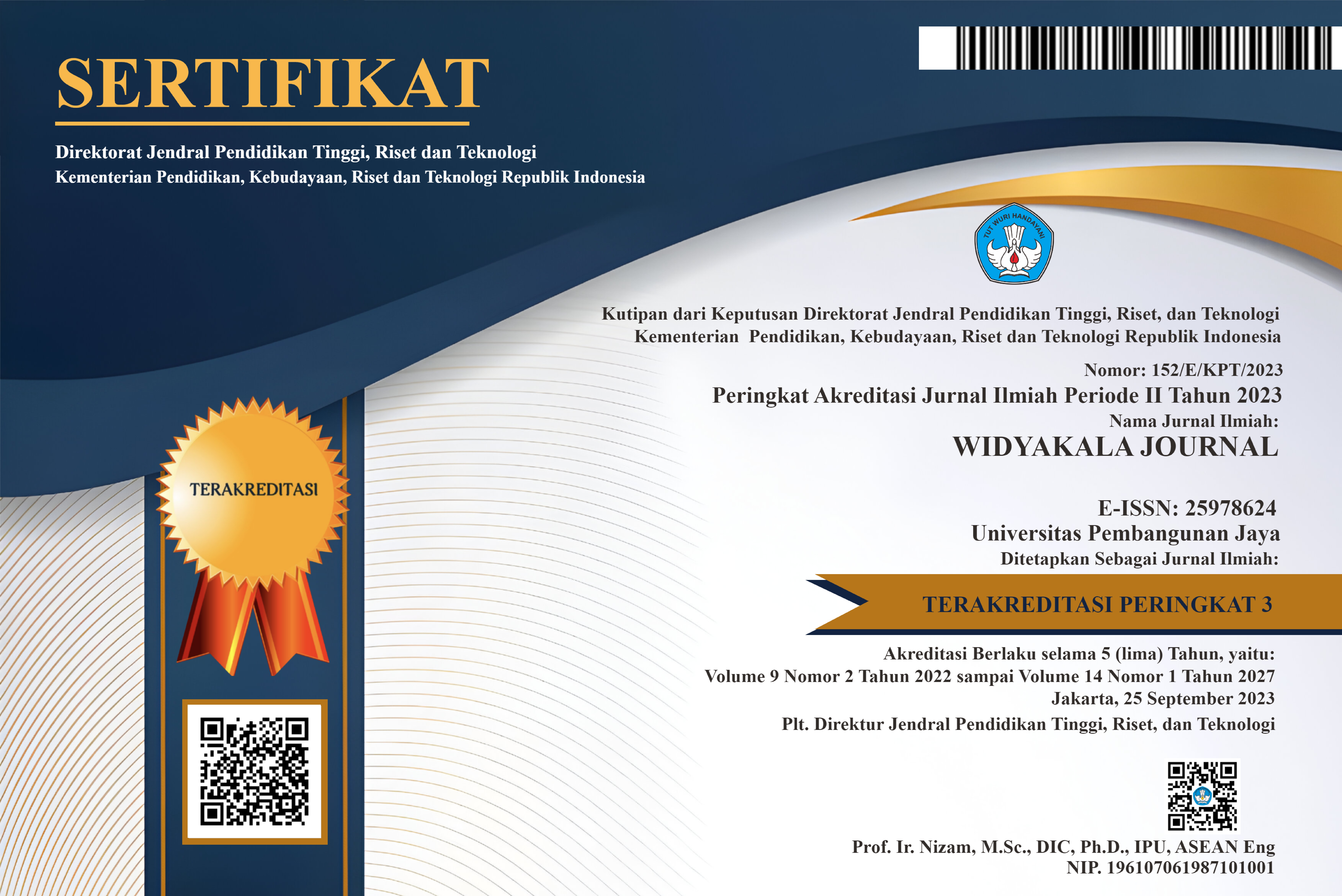Updated, March 2025
The Productivity of Vocational Schools: The Role of Efficiency, Fairness, Transparency, and Accountability of Financial Management
Abstract
In the last decade, vocational education quality is one of the productivity measurements. To measure productivity were internal and external efficiency, the quality of graduates, financial management, and effectivity. This study aims to examine and analyzed the effect of the principles of efficiency, fairness, transparency, and accountability in financial management on vocational school productivity simultaneously or partially. The sampling technique used was a census. Data collection methods using questionnaires. Data analysis methods using logistic regression analysis. The results of this study could be concluded that teachers' perceptions of school productivity were good, but they're still needs to be an improvement in school policies in keeping schools productive and even increasing. The results both partially and simultaneous were the application of the principle of transparency and accountability proven to contribute significantly to increasing school productivity. Whereas the principle of efficiency and fairness didn’t significantly contribute to increasing the productivity of vocational schools in Business and Management in Tangerang Municipality. While simultaneously, the application of the principles of efficiency, fairness, transparency, and accountability in school financial management contributed to creating school productivity. The implication of this research was useful for improving the quality and productivity of vocational schools in Tangerang Municipality.
Keywords
Full Text:
PDFReferences
Asopwan, D. (2018). Studi Tentang Akreditasi Dalam Meningkatkan Produktivitas Sekolah. Indonesian Journal of Education Management and Administration Review, 2(2).
Atkinson, R. D. (2013). Competitiveness, Innovation and Productivity: Clearing up the Confusion. The Information Technology & Innovation Foundation, (August), 1–7.
Hanson, T. A., & Olson, P. M. (2018). Financial literacy and family communication patterns. Journal of Behavioral and Experimental Finance, 19, 64–71. https://doi.org/10.1016/j.jbef.2018.05.001
Hanushek, E. A., & Ettema, E. (2017). Defining Productivity in Education: Issues and Illustrations. The American Economist, 62(2), 165–183. https://doi.org/10.1177/0569434516688207
Hee, O. C., Ong, S. H., Ping, L. L., Kowang, T. O., & Fei, G. C. (2019). Factors Influencing Job Satisfaction in the Higher Learning Institutions in Malaysia. International Journal of Academic Research in Business and Social Sciences, 9(2), 10–20. https://doi.org/10.6007/ijarbss/v9-i2/5510
Iibi, J. (2019). Managing Employee Diversity for Effective Productivity in Secondary School in Rivers State , Nigeria. KIU Journal of Social Sciences, 5(2), 201–213. Retrieved from http://www.ijhumas.com/ojs/index.php/kiujoss/article/view/527/488
Jones, A. (2018). Vocational education for the twenty-first century, (August), 1–11. Retrieved from https://melbourne-cshe.unimelb.edu.au/__data/assets/pdf_file/0011/2845775/Final-Anne-Jones-paper1.pdf
Kemendikbud. (2018). Neraca Pendidikan Daerah Provinsi Banten 2018. Jakarta, Indonesia: Kemdikbud.
Kyratzi, P., Tsamadias, C., & Giokas, D. (2015). Measuring the efficiency and productivity change of Greek universities over the time period 2005-2009. International Journal of Education Economics and Development, 6(2), 111–129. https://doi.org/10.1504/IJEED.2015.070620
Pemerintah-DPR. (2003). Undang-Undang Nomor 20 Tahun 2003 tentang Sistem Pendidikan Nasional. Jakarta, Indonesia: Lemabaran Negara RI Nomor 4301. https://doi.org/10.16309/j.cnki.issn.1007-1776.2003.03.004
Pemerintah Republik Indonesia. (2008a). Peraturan Pemerintah Nomor 47 Tahun 2008 tentang Wajib Belajar. Lembaran Negara Indonesia 4863.
Pemerintah Republik Indonesia. (2008b). Peraturan Pemerintah Republik Indonesia Nomor 48 Tahun 2008 tentang Pendanaan Pendidikan. Kemenristekdikti. Retrieved from https://kelembagaan.ristekdikti.go.id/wp-content/uploads/2016/08/PP48-2008DanaDik.pdf
Prapliyati, & Margunani. (2019). Pengaruh Akuntabilitas, Transparansi, dan Efisiensi Pengelolaan Keuangan Sekolah Terhadap Produktivitas Sekolah. Economic Education Analysis Journal, 8(3), 1030–1044. https://doi.org/10.15294/eeaj.v13i3.35725
Raeni, & Setiyani, R. (2014). Pengaruh Prinsip Keadilan, Efisiensi, Transparansi, dan Akuntabilitas Pengelolaan Keuangan terhadap Produkstivitas SMK. Economic Education Analysis Journal, 3(1). https://doi.org/10.1017/CBO9781107415324.004
Sari, P. G., Sujanto, B., & Matin, M. (2020). The Effect of Personality and Quality of Work Life (QWL) on the Work Productivity of Middle School Teachers. EDUTEC : Journal of Education And Technology, 4(1), 1–14. https://doi.org/10.29062/edu.v4i1.76
Setiyawan, H., & Safri, M. (2016). Analisis Pengaruh Akuntabilitas Publik, Transparansi Publik Dan Pengawasan Terhadap Kinerja Satuan Kerja Perangkat Daerah Di Kabupaten Bungo. Jurnal Perspektif Pembiayaan Dan Pembangunan Daerah, 4(1), 51–72.
Setyawan, M. H. D. (2015). Pengaruh Prinsip Keadilan, Transparansi, dan Akuntabilitas Pengelolaan Anggaran terhadap Produktivitas Sekolah (Persepsi Guru SMP N 3 Mertoyudan Magelang). Universitas Negeri Semarang. Retrieved from https://lib.unnes.ac.id/20689/1/7101410051-s.pdf
Sobandi, A., Yuniarsih, T., Rasto, & Adman. (2020). Learning Facilities: Can It improve the vocational school productivity? Journal of Educational and Social Research, 10(4), 146–155. https://doi.org/10.36941/jesr-2020-0074
Sukardi, M. S., & Djalil, M. A. (2019). Effect of Effectiveness, Transparency and Accountability of Budget Management on High School Productivity in the Regency of Bener Meriah, Province of Aceh, Indonesia. East African Scholars Journal of Economics, Business and Management, 2(12), 790–797. https://doi.org/10.36349/easjebm.2019.v02i12.015
Tangen, S. (2002). Understanding the concept of perineology. In Proceedings of the 4th Asia Pacific Industrial Engineering and Management Systems Conference (APIEMS2002), Taipei (pp. 275–277). Beijing: Asia Pacific Industrial Engineering & Management Society (APIEMS).
Thomas, P. (2013a). Faktor Determinan Produktivitas Sekolah. Jurnal Penelitian Dan Evaluasi Pendidikan, 17(1), 55–71. https://doi.org/10.21831/pep.v17i1.1361
Thomas, P. (2013b). Penerapan Model Produkstivitas SMKN Bisnis-Manajemen di Kota Semarang. Pendidikan, Jurnal Dinamika, Ekonomi, VIII(1), 1–10.
Utama, A. D., & Setyani, R. (2014). Pengaruh Transparansi, Akuntabilitas, Dan Responsibilitas Pengelolaan Keuangan Sekolah Terhadap Kinerja Guru. Dinamika Pendidikan, 9(2), 100–114. https://doi.org/10.15294/dp.v9i2.4886
DOI: https://doi.org/10.36262/widyakala.v8i1.379
Refbacks
- There are currently no refbacks.
Copyright (c) 2021 WIDYAKALA: JOURNAL OF PEMBANGUNAN JAYA UNIVERSITY

This work is licensed under a Creative Commons Attribution-ShareAlike 4.0 International License.
Redaksi Jurnal Widyakala
Lembaga Penelitian dan Pengabdian Kepada Masyarakat (LP2M)
Universitas Pembangunan Jaya
Jalan Cendrawasih Raya Blok B7/P, Sawah Baru, Ciputat, 15413
Telp : 021-7455555 ext 1311
widyakala.journal@upj.ac.id


















